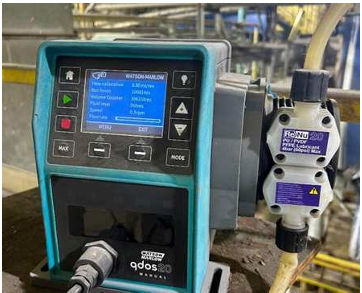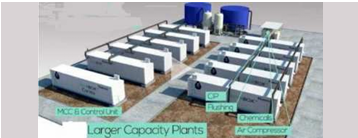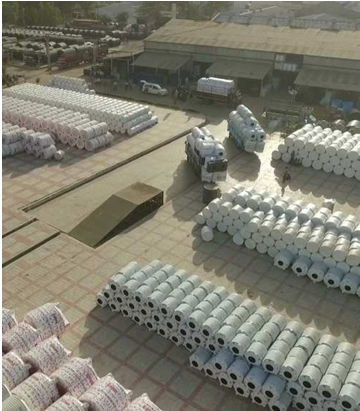By Mangesh Dashrath Surve, Founder- Managing Director (MD), Envicare Technologies Pvt. Ltd.
Water is the most precious thing on our planet. It can be called the only true elixir of life. However, wastewater has impacted water levels and water quality.
It is where wastewater management comes into the picture and can become a vital force in saving water. There are mainly three ways to deal with wastewater for far-reaching impact.
- WASTEWATER REUSE :
Reusing anything is a classic way of ensuring that the item lasts long, gets utilised in a long term and leaves a mark on the planet. Wastewater reuse can make a positive impact on Earth. It can be called the first step in wastewater management and keeping its creation in control.
However, there are quite a few questions which arise in this regard. The usual query is about the way of reusing wastewater. The vital part is that this reusing should become a continuous process and almost a habit that is hard to let go of.
You must ask yourself questions. One of the most important questions to ask before throwing this water away is – is there any way of reusing this water back?
Yes, there are. But it requires extensive study and implementation later on.
There have been quite a few case scientific studies done on reusing wastewater. One happens to be on the wastewater produced from the washing in the bearing industry. Our simple treatment did the work of using wastewater repeatedly for washing. It includes just removing the oil and grease from the water. The results can be called path-breaking and save the expenditure of washing chemicals and the cost involved in water treatment for meeting discharge standards.
The reuse process must have serious reconsideration. There need to be experts involved in its reuse prospect. It stands true for the chemical, pharmaceuticals, tannery and electroplating industries, where wastewater treatment can help recover precious minerals, metals from the wastewater involved. The impact on industries will be huge.
There have been technologies that have made inroads in this aspect. Technologies like Anaerobic Treatment and Constructed Wetlands have proved useful in reusing wastewater in lower cost and making use of the by-products.
However, there are chances of challenges.
• Right Mindset, perception in reusing the waste
• Lack of Knowledge
• Lack of Awareness for Taking Initiative
That is why there should be urgency in recognizing that by figuring out a system, the issue of releasing waste water will go away by at least 50%. - WASTEWATER RECYCLING:
The next obvious step will be looking into methods of wastewater recycling. It is the best option to ensure waste water does not go waste and further impacts the environment. You must know the 4Rs of any waste management.
The alarming point in the present water management scenario is the UN’s report on India’s water situation. It speaks about India being the most troubled country in freshwater availability by 2030. It has to make us even more aware of ways to manage precious water. India’s future is very much dependent on our wastewater management.
This big challenge can be met by choosing wastewater recycling. The statistics speak of 90% of wastewater produced by the domestic sectors while the industrial sector makes up 70%. It looks serious. That is why the best and easiest to recycle would be domestic wastewater.
The first step would be changing one’s mindset regarding using treated wastewater. A positive thinking towards this treated wastewater can be a stepping stone for recycling. Once that hurdle is crossed, the rest of the road towards recycling will smoothen out.
A classic case study is of RCF, which was named a water production plant. The plant obtains the sewage from the city of Mumbai for recycling. It later sustains the company’s freshwater needs for production. It is a boon for the metropolis where millions reside and face water issues.
It is a matter of better ease& saving operating costs to recycle any domestic and industrial wastewater than treating high TDS- seawater desalination. The wastewater recycling management in countries like Brazil and Singapore is worth studying and following.
There can be a few challenges in wastewater recycling too.
• Less R&D as Compared to Other Countries
• Less System Orientation and has a Need-Based Attitude
• Availability of Technology and On-ground Implementation
• Lack of Educated manpower for operating critical systems
The American government has labelled water as a commodity. Wasting this precious resource can be troublesome for future generations. Rum ours are going around that water will be the reason for the start of the 3rd World War. So, wastewater recycling has to be decided. - ZERO LIQUID DISCHARGE (ZLD):
In the battle for 100% saving of wastewater, ZLD is another option touted for the future. There should be planned design, estimations and expert answers before applying ZLD. It will help apply ZLD better.
ZLD is termed as the ultimate engineering part of dealing with wastewater recycling. It includes process application and end use. It can be called the most recent initiative taken by PCB to make wastewater recycling or treatment a compulsory & stringent process.
The typical flowchart involved here is:
Regular ETP ˃>Ultra Filtration ˃> Reverse Osmosis ˃> Multiple Effect Evaporators
The treatment product is obviously on the expensive side for the primary and later for the operating cost. R&D is needed so that the waste water becomes appropriate for the UF and RO feed which then saves the cost of the evaporation system. Better costing is a boon.
Then there is a requirement to conduct studies and reports on the treatability and feasibility to implement the system. It is because ZLD will behave differently with every wastewater.
Another huge challenge would be of managing the concentrated solids disposal. What most must understand is this management can literally improve wastewater products by purification and later use it for proper treatment.
ZLD stands for economisation, corporate commitment and deep consideration for the environment. This process is also a way to lower the wastewater impact on the ecosystems and climate near us.






